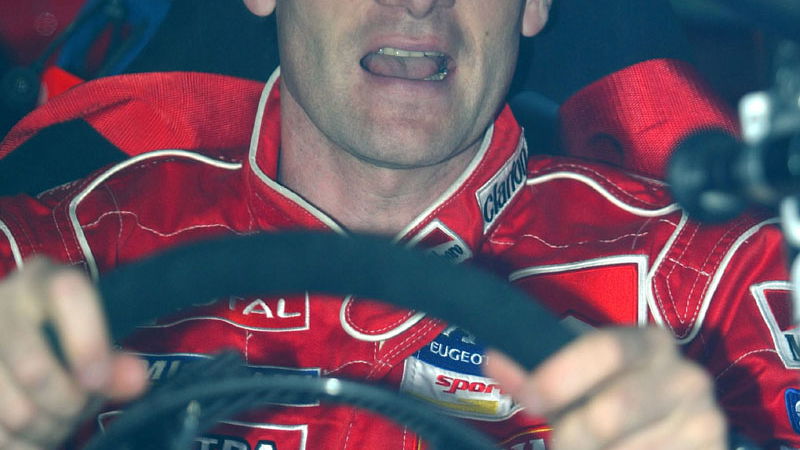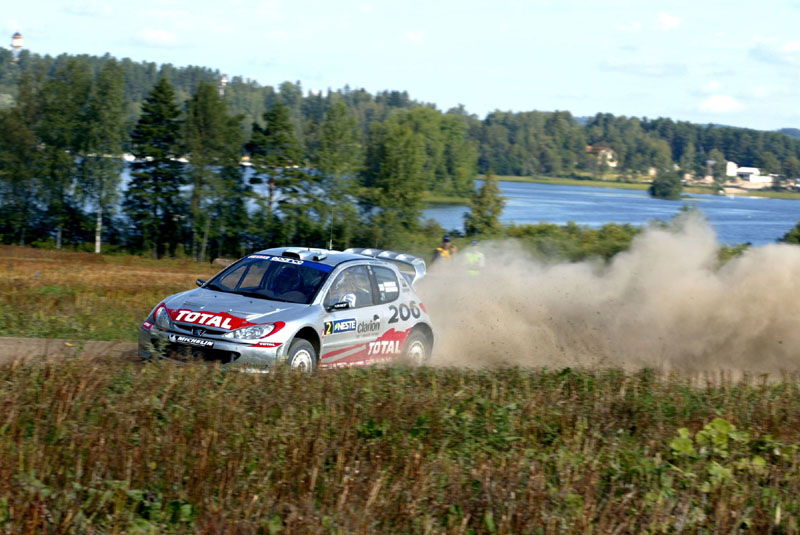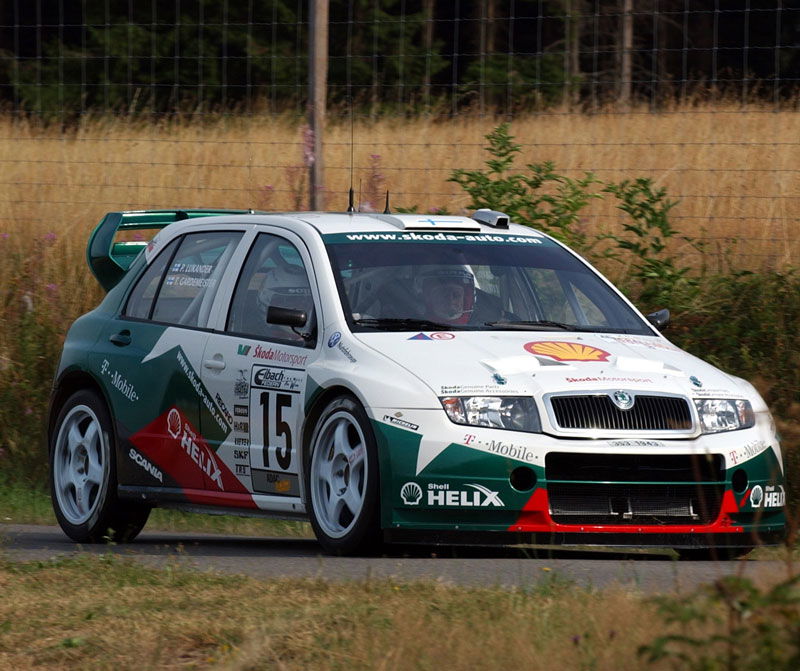Q&A: Marcus Gronholm.
Peugeot's Marcus Gronholm will be one of the favourties this weekend in Finland, as he spearheads the 206 WRC challenge. Gronholm has won the event for the past three years and only a brave man would bet against him making that four this coming weekend. Here the Finn talks about his home event as well as the challenge of racing on tarmac in Germany and on the upcoming events in Italy, France and Spain...
Q:
Prior to the start of Rallye Deutschland, had you expected to be so competitive on asphalt?

Peugeot's Marcus Gronholm will be one of the favourties this weekend in Finland, as he spearheads the 206 WRC challenge. Gronholm has won the event for the past three years and only a brave man would bet against him making that four this coming weekend. Here the Finn talks about his home event as well as the challenge of racing on tarmac in Germany and on the upcoming events in Italy, France and Spain...
Q:
Prior to the start of Rallye Deutschland, had you expected to be so competitive on asphalt?
Marcus Gronholm:
Everyone knows how competitive the 206 WRC is on this type of surface and I had taken part in the two previous Rallye Deutschlands, so it was legitimate to hope for a top result, even if the level of competition was higher than ever this year. Before the start, I believed I had a chance of finishing on the podium, so coming second was a satisfactory result. Even so, I feel slightly frustrated when I think I could have finished one place better. I came close to taking my first WRC win on asphalt but unfortunately I made a small mistake on the Sunday which lost me time, while Sebastien Loeb had a perfect run. He deserved to win.
Q:
For a gravel specialist like you, what are the main difficulties adapting to competing on asphalt?
MG:
The first thing is to understand where the car's limits are on asphalt through the different types of corner and, above all, to evaluate braking distances precisely. I had a bit of trouble with these parameters to begin with and the bodywork of my cars tended to show that. Today, I have a good grasp of them. My cornering lines are naturally very tight, even on gravel, so they are well suited to asphalt. I am quickest when the going is either completely dry or completely wet. I admit I find it a bit more difficult to switch from one to the other or when the level of grip changes all the time, as in the Monte Carlo Rally for example. That said, I benefited from an advanced course in coping with shifting conditions on the slippery, muddy stages of Rallye Deutschland!
Q:
Do you think you will be able to take revenge soon in Italy, Corsica or Catalonia?
MG:
Why not? Last year, I finished just 20 seconds behind Gilles Panizzi in Sanremo, which proves I've made progress, even on the traditional asphalt events. Thanks to advice from Gilles and to the work of my engineer Fran?ois-Xavier Demaison, I have developed my technical awareness as well as my driving style. This has given me added confidence on this type of surface and I now feel ready. I can win on asphalt, but there are still a lot of other drivers I will have to beat first, including my own team-mates.
Q:
You are about to compete on your home event in Finland where you haven't been beaten in three years. Can you make it four in a row?
MG:
That's my intention, but I'm fully aware that it's going to be particularly tough this year. All my rivals want to beat me, so it's by no means a foregone conclusion. That said, I share my winning streak with Peugeot and the 206 WRC which is particularly strong over this type of terrain thanks to its exceptional stability, effective suspension, faultless traction and excellent top speed. Here again though, nobody in the team expects it to be easy. The other teams' engineers have put in a tremendous amount of work in all areas with their new, latest generation cars. This season is the 206 WRC's fourth full campaign, but it continues to be the car to beat thanks to its strong basic qualities. In the hands of Juuso Pykalisto and Sebastian Lindholm, we've seen that even the 2001 version is still very competitive in Finland.
Q:
Which drivers do you fear most on your home event?
MG:
I would tend to put Harri Rovanpera at the top of the list, because he's Finnish and because he also will be driving a 206 WRC. But that's a bit of a simplistic argument. I don't think it is still necessary to have been born in Finland to win, even if the support you get from the local fans always gives you a little extra motivation. A number of other drivers of various nationalities today know this event very well and could easily win. Richard Burns has already shown he is capable of fighting for victory and Markko Martin now has just as much experience of this type of terrain as some of the older hands.
Q:
How do you see the rest of the championship unfolding?
MG:
From a personal viewpoint, victory in Finland would be nice for sure. Before my second place in Germany, I spent the first half of the season either winning or going home with no points. To stand a chance of keeping my title, I will have to score as many points as possible, which means aiming for victory each time while at the same time avoiding making terminal mistakes. For the rest, I am confident in Peugeot Sport's ability to stick together and correct the small reliability problems we have had recently. I know it's going to be tougher than ever, but we are capable of rising to the challenge.
Q:
You already have a contract with Peugeot Sport for 2004. That's a sign of mutual confidence...
MG:
Exactly. From the engineers to the mechanics, the whole team is extremely determined and capable, as its results over the past three years prove. Of course, there has been the occasional setback, but these have always ended up stimulating everybody's motivation and nobody has ever rested on their laurels for long. The icing on the cake is the friendly atmosphere. I feel part of a family.







